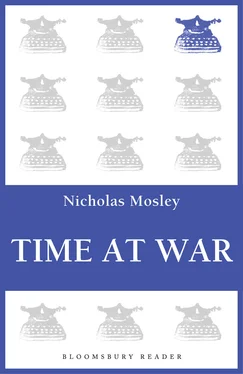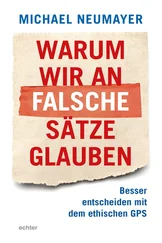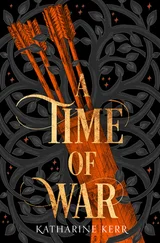When Mervyn was summoned by the colonel and the brigadier to report on his withdrawal, he said that they did not seem to understand the futility of their tactics: we would never take Spinello — nor indeed Spaduro — with cumbersome numbers of men sliding down into a mud trap at night and there remaining helpless while they were shot at from Spinello. What was necessary, he said, was for a small force of men to set off while it was still light by as direct a route as possible to Spinello, keeping as far as they could just under the shelter of the spur. Then, when they were as close to Spinello as they could get like this, they could attack running fast across open ground. This should happen shortly before the regular time of stand-to at dusk, when it was almost inconceivable that the Germans would be expecting an attack, so uncommon was any movement by day, and in fact it was possible that the Germans would be sleeping. Then if this attack on Spinello was successful there would be a chance of a major night attack on Spaduro succeeding.
The colonel and the brigadier listened to Mervyn and said — ‘All right, you and your company try it.’
One of the other platoon commanders in our company was the young communist from Liverpool, Desmond Fay, with whom in Egypt I had argued amicably about communism and fascism. Desmond had been brave during the advance from Cassino, and had been awarded the Military Cross.
Now, when Mervyn gathered us to tell us of his plans, he suggested that Desmond should go out in the early afternoon with just one or two men and try to find out what was the situation in Spinello — how many Germans were there and what were their defensive positions. If possible, he should bring back a prisoner who could be questioned. Then, if Desmond’s information was satisfactory, I with my platoon would lead an attack to capture the farmhouse and buildings — still in daylight, but just before the time when the Germans could be expected to be standing-to. Then if my attack was successful, the rest of the company would come up and we would hold Spinello during the night while the inevitable German counterattacks came in, and while a large-scale Allied attack on Spaduro would go in, this time with a chance of success because the crossfire from Spinello would have been eliminated.
This scheme seemed to me both mad and yet, as it had done to Mervyn, to make some sense. But I wondered — Why has Mervyn chosen me to do the attack? Then — Oh yes, I see.
When I told my sergeant and my section commanders of this plan they too naturally thought it was mad: had we not been told never to move into the view of the enemy in daylight? I explained: Yes, but they will not believe that we could be so mad; they will not have properly woken from their daytime sleep; they will think they are dreaming. My section commanders and sergeant looked at me as if they thought they or I might be dreaming.
From a certain vantage point we could just see, by lifting our heads carefully, the farmhouse about a quarter of a mile away along the spur; some ruined farm buildings were on this side of it. We had a few hours to wait before Desmond set off on his patrol, after which it would almost certainly be our turn to go. We could pass the time by making sure that our weapons were in proper order. I had myself by this time acquired a Thompson sub-machine gun, which had the reputation at critical moments of being likely to jam. But not, surely, if one took enough trouble. There was time also to ruminate on the bizarreness of fate.
When I had been taken prisoner and had succeeded in my decision at any cost to try to escape, I had been helped by good fortune and by Mervyn. Then later, when I had been wounded south of Cassino, Sergeant Mayo, who had taken over from me, had been killed. I had thought — All right, I am very lucky! But sooner or later there will be pay-back time. Something further will be demanded of me: either my luck will run out, or there will be some test why it should not.
So is not this now the sort of task that I have wanted, or needed, ever since most of my platoon were taken prisoner without firing a shot, even though I had managed to escape? I have needed a chance to show in a positive way a break from the cynical attitudes of my past; from the negative tendencies of my history. When Mervyn had come to tell me of his plans for my attack he had murmured, ‘This is an MC job.’ This was army jargon for an assignment which, if it succeeded, might result in one’s being recommended for a Military Cross; if it failed one was likely to be dead.
So had Mervyn an instinct for what I might require?
(You think people don’t ruminate on such things at such perilous moments? What else do they think about?)
Desmond Fay’s patrol was amazingly successful. He went out with just his sergeant and came back with a German prisoner who had been half asleep in a trench by the farm buildings. The German talked: he said that Spinello was held by about thirty men during the day; at night they were in contact with troops on the hills behind who came up with more machine-guns. There was some good news in this in that it seemed the Germans might not be in good heart if the man had been taken and talked so easily; but thirty men was a lot for my depleted platoon to take on, and would not the capture of this prisoner mean that his colleagues would now have been alerted? My platoon was down to fifteen men, what with sickness and injury, and when it was time for us to form up I wondered if there would be any who would say they could not go on. There was, in fact, only one, a senior corporal who lay in the bottom of his trench and said he could not move. I talked with him for a time and then said — All right, don’t. He would not have been much use in a platoon that was otherwise behaving so admirably. But I think we all felt we might be on a suicide mission.
I had two lance-corporals, Tomkinson and McClarnon, who with their sections would go with me into the attack. My sergeant would be with the Bren gun of the third section to give us covering fire. The rest of the company would be ready to give more covering fire if necessary from the hill at the back.
Desmond was to start off with us to show us the way he had reconnoitred, keeping out of sight of the farmhouse by moving under the brow of the spur. But even here we would be in full view of the Germans on the hills beyond — so was it true they would be sleeping? Then, for the last hundred yards or so, we would have to break from the cover of the spur and run to the farm buildings across open ground; if the Germans had been alerted, this is what was likely to be suicidal.
We moved off in our meagre crocodile quite openly, like people hoping not to draw attention to themselves if they show sufficient insouciance. On our right we could look across the valleys that stretched away towards Imola and the promised land of the northern plain. For the first time in weeks the rain was holding off; it was almost a beautiful evening.
We got to the place beneath the spur that seemed nearest to the farmhouse, and there we spread out and lined up. When I told the story later (I did not often do this) I used to say that I was frightened, yes, but what I was most frightened of was not being able to stand the fear — and then what would happen? The fabric of the mind would crack and I would fall through? When I had felt close to death in the snow at Montenero all I had had to do was lie still; now I had to run forward. I saw that the Bren gun was in position to give us covering fire; then I gave the order to go.
I had been a fast runner at school and now it was obviously in my interest to get into some sort of cover as soon as possible. The farm buildings were, after all, not much more than eighty yards away, which was not too bad a distance; but I was festooned with tommy-gun, spare magazines, grenades; and … and … never mind, just keep running. When I had almost reached the farm buildings I looked back and saw Corporal McClarnon’s section a long way behind. I shouted, ‘Come on McClarnon!’ He, a sturdy man with short legs, shouted, ‘I’m coming as fast as I can!’ By this time Corporal Tomkinson had caught up with me; then a man with a gun popped up from the rubble of the farm buildings and Tomkinson fired at him and hit him, and I sprayed with my tommy-gun the buildings from where he had appeared. Then someone started shouting ‘Don’t shoot, Johnny! Play the game, Johnny!’ So Tomkinson and I ran on. By this time grenades thrown from the farmhouse had started landing around us, so I called to McClarnon to take charge of any people in the buildings and Tomkinson and I got to the back wall of the farmhouse. There was now a good deal of machine-gun and rifle fire, whether from Germans on the hills beyond or our own people giving us covering fire from the back I could not tell. It was obviously urgent to get inside the cover of the house.
Читать дальше












